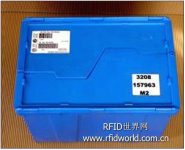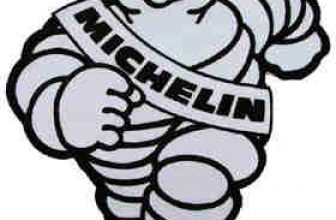
Volkswagen in Mexico uses RFID to improve parts delivery
[ad_1]
When Volkswagen drivers in Mexico City need to replace vehicle parts, they usually find Volkswagen dealers, and these dealers order parts from the Volkswagen factory in Puebla-located about 75 miles outside of Mexico City.
In order to improve the parts distribution process, Volkswagen Mexico has launched a project, part of which is to replace the cardboard boxes used to ship parts in the factory with RFID tags and reusable plastic containers. This application allows the Puebla plant to reduce the cost of parts distribution each year by 30% through reduced packaging costs and an automated cargo confirmation process, according to Juan Manuel Rodríguez Flores, sales manager of system integrator Grupo Hasar.
In the second half of 2007, Mexican Volkswagen hired Grupo Hasar to design a plan to help the company reduce the manual steps required to send parts to dealers. After a pilot test, the company officially launched the system in July 2008. Now, Volkswagen Mexico and Grupo Hasar have jointly extended this system to other Volkswagen plants in Mexico.

The Mexican Volkswagen Puebla plant uses labeled, reusable plastic containers.
When a distributor submits a retail order to the Puebla factory, the SAP enterprise platform planning software used by VW captures this information and forwards it to the factory warehouse management system (WMS). After the factory employees received the order, they drove the forklift truck to the warehouse to collect all the required parts. They use a handheld scanner to read the barcode of each part, and then place the part on a packaging table. Currently, Flores claims that because RFID tags are too expensive to replace barcodes on single products; if the cost of tags drops in the future, the Puebla factory may switch to RFID tags and further individual parts.
At the packing table, another employee uses a handheld barcode scanner to read the strip label of the reusable container. The tag is embedded with an RFID tag-Alien Technology Squiggle passive UHF EPC Gen 2 tag. The barcode and label are encoded with the same ID code. A handheld scanner is used to collect ID codes, and workers scan the bar codes of each part put into the container. When he is finished, the handheld will match the retail ID code with the container ID code, and then upload the data to WMS.
In the warehouse management software, the order status is upgraded, indicating that the order has been packaged. When the container is loaded into a truck and is ready to be shipped to the dealer, a Motorola XR440 RFID reader installed on the loading dock captures the ID code of the RFID tag. This information is also forwarded to WMS, marking the completion and delivery of the order, and marking the date, time, and delivery to the warehouse. When the distributor receives the parts, the barcode labels on the containers are read one by one, and they are registered in the WEB-based WMS, so that the Puebla factory knows the receiving time of the container.

At the loading dock, an RFID reader reads the label of each plastic container in the truck
Currently, only 30% of Volkswagen dealers who order parts from Puebla receive plastic containers with RFID tags. These distributors receive parts from the Puebla factory twice a week, and the container return process is very simple: the distributor returns the empty container when it receives a new container.
When empty containers are returned to the Puebla warehouse, they pass through a channel RFID reader and then returned to the factory’s container inventory. If the record shows that the dealer fails to return the labeled container within 10 days after receiving the goods, he will be subject to a certain fine.
At present, the factory has adopted 16,000 RFID-labeled, reusable containers. In addition, the factory has 350 labeled metal carts. The cart tag is an Intermec passive EPC Gen 2 tag, and its protective shell provides a buffer between the tag and the metal surface of the cart.
Reusable RFID containers can not only save the Puebla factory’s ever-increasing cardboard container costs, Flores says, it also greatly reduces packaging waste.
Taking into account the advantages of the new tracking system-reduced packaging costs, faster shipment confirmation system-Volkswagen Mexico hopes to replicate this system in its parts distribution plants in Guadalajara and Monterrey. In the second half of this year, Flores said that Volkswagen parts distributors in the US may also use this RFID system to track parts shipments.
[ad_2]




